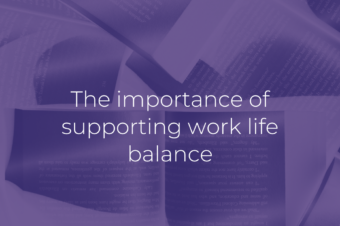I rather think that quiet quitting is and has, for a long time, been much more prevalent than most managers would like to think.
Not quitting the job, just quitting the idea of going above and beyond. The reduction of personal work performance to what you are contractually obligated to fulfil. Just enough not to be noticed or get into trouble; so no volunteering, no stepping up to help out, no overtime or taking on additional tasks or projects.
Gallup says that just 9% of UK workers feel enthused by their work and workplace in 2022, well below the European average of 14%. No wonder then that they are mentally checking out, just doing the minimum they need to get by and unwilling to go the extra mile. They won’t make that effort unless they trust management and believe that those managers care about them and their wellbeing, and will provide reward, recognition, feedback and development opportunities.
What is happening?
So we know that a huge number of people don’t feel engaged with their work, they work for the money and are dissatisfied with their career path; businesses lose as a result of this lack of employee engagement. Frankly, if only 9% of our people are engaged that means an awful lot of managers are not energised, enthused and engaged either, so corporate leadership has a lot of work to do to turn things around.
The quiet quitter is biding their time until they can move on to something better, more interesting or better paid. Sadly our managers are not well trained in people management and are probably over-worked and under-resourced to the extent that sometimes they don’t notice an employee is just treading water, or they know but tackling it would probably just make things worse, because if they fire someone who is not enthusiastic it is really hard to replace them at the moment, and then they have to train a new employee.
HR should be trying to improve employee engagement, and providing a culture where communication and collaboration can thrive; but if leadership doesn’t back those initiatives then there will be employees quietly keeping their heads down and doing just enough to avoid attracting negative attention. It’s not good, it’s not healthy in terms of productivity or employee wellbeing but it is widespread and difficult to tackle. Once a person has lost the impetus to engage at work, it is hard to renew that energy and commitment.
Why is it happening?
Workers who take this route do it for a whole range of reasons. They may be burned out, stressed, concerned about work/life balance, over-worked, underpaid; in some way disenchanted with a role that is not meaningful, not motivated and energised, disengaged in short.
The problem is largely due to corporate culture and poor management. Employees want a voice, they want recognition and feedback. A YouTube commentator recently suggested that quiet quitters are losers. Not helpful! This is a wake-up call for leaders – to support employees, ensure that they’re able to set healthy boundaries and that they have meaningful, healthy, and productive working lives.
At the moment it is probably all too easy for the disengaged to quietly quit making any extra effort. We’re all so busy recovering from the pandemic and there are staff shortages in many sectors, the chronically disaffected can get by on looking just busy enough; if a manager is so overloaded and under-resourced that s/he doesn’t know which way to turn, they are probably only peripherally aware that team members are not going all out; only when it affects their own career are they likely to take more notice.
What to do?
Employees who like, admire and respect their manager will go the extra mile, will put in extra effort, suggest improvements and efficiencies and take accountability for their actions. If someone on your team has quietly stopped putting energy and commitment into their work, guess what, it’s because they are getting the same pay, same recognition, same everything but without the stress.
Creating positive levels of employee engagement requires managers to engage in meaningful career conversations and provide regular employee feedback in a timely fashion. A once a year performance appraisal will not buy you engagement, you need to focus on putting your employees first.
A recent article in People Management magazine points out that we should provide regular feedback to show employees that they and their professional development are valued. Show workers you are genuinely concerned for their welfare and encourage them to seek assistance if they are disengaged.
An employee-centred approach
At 10Eighty we have long championed the idea of a more employee-centric approach to people management. We believe that employees seek meaning and purpose in their work; they thrive and perform to full potential in a culture that resonates with their own values and aspirations.
A successful enterprise needs people who feel they are part of things, who understand the corporate vision and strategy and who can see that their contribution counts for something. They put in discretionary effort because they now see the link between their performance and organisational success.
Aim to create an environment that encourages and builds the conditions and attitudes that lead to engagement and bear in mind that managers must show that their commitment to organisational values and employer brand is real and tangible.








